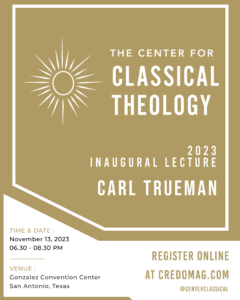
William Perkins: The Pastoral Fervor and Spiritual Dynamics of a Reformed Scholastic
T he term scholasticism is often used in a derogatory manner to describe theology which is abstract, pedantic, or obscure. While there are theologians (both ancient and modern) who have justifiably earned such a moniker, we must be careful to distinguish between this pejorative usage of the term and its more technical meaning. In brief, the word scholasticism comes from the Latin schola (school), and it describes those theologians who lectured in universities and were committed to the integration of three principal domains (the theological, exegetical, and metaphysical) by means of a particular method of study (the syllogistic argument, the quaestio format, etc.). Those Reformed theologians who adopted and applied this theological method at the time of the Protestant Reformation and shortly thereafter are known as Reformed scholastics—men such as Francis Turretin, Peter Vermigli, Martin Bucer, and Amandus Polanus. Many of the Reformed scholastics were also pastors, deeply concerned about promoting worship and cultivating godliness among God’s people. Click To Tweet
he term scholasticism is often used in a derogatory manner to describe theology which is abstract, pedantic, or obscure. While there are theologians (both ancient and modern) who have justifiably earned such a moniker, we must be careful to distinguish between this pejorative usage of the term and its more technical meaning. In brief, the word scholasticism comes from the Latin schola (school), and it describes those theologians who lectured in universities and were committed to the integration of three principal domains (the theological, exegetical, and metaphysical) by means of a particular method of study (the syllogistic argument, the quaestio format, etc.). Those Reformed theologians who adopted and applied this theological method at the time of the Protestant Reformation and shortly thereafter are known as Reformed scholastics—men such as Francis Turretin, Peter Vermigli, Martin Bucer, and Amandus Polanus. Many of the Reformed scholastics were also pastors, deeply concerned about promoting worship and cultivating godliness among God’s people. Click To Tweet
What surprises many people today is to hear that the Reformed scholastics were anything but abstract, pedantic, or obscure. While their writings are intellectually demanding, they are marked by a clarity and vitality that is noticeably absent from much contemporary theology. It also comes as a surprise to many when they discover that most of the Reformed scholastics were also pastors, deeply concerned about promoting worship and cultivating godliness among God’s people.
A notable example of this pastoral focus among the Reformed scholastics is William Perkins (1558–1602). While serving as a fellow at Christ’s College in Cambridge, he was installed as a lecturer, across the street, at Great St. Andrew’s Church. His popularity as a preacher is explained in part by his ability to adapt his scholastic learning to the needs of those in the pew. As one biographer observed, “His sermons were not so plain but that the learned did admire them, nor so learned but that the plain did understand them.”[1] Another factor that contributed to Perkins’s popularity was his emphasis on spiritual dynamics.
Targeting the Conscience
The apostle Paul exhorts Timothy to “war a good warfare, holding faith and a good conscience” (1 Tim. 1:18-19). This simple command captured Perkins’s attention. As a preacher, he was concerned about imparting the “faith” (sound doctrine) to those under his watch, and he was equally concerned about promoting “a good conscience.”
Central to Perkins’s understanding of the conscience is his belief that the soul consists of two main faculties: understanding and will (including affections).[2] The faculty of understanding, in turn, has two parts: the “theoretical” which contemplates what is true and false, and the “practical” which compares our words, thoughts, affections, and actions against what is true and false in order to determine whether they are good or bad. According to Perkins, God has placed this conscience between Him and us, to serve as an “arbitrator” to pass sentence either for us or against us.[3] Central to Perkins’s understanding of the conscience is his belief that the soul consists of two main faculties: understanding and will (including affections). Click To Tweet
The conscience “gives testimony” by determining what we have done or not done, and it “gives judgment” by determining what was “well done or ill done.”[4] It makes this determination based on God’s Word—the “binder” of the conscience.[5] Of particular significance to Perkins is the fact that the mind and memory function as “assistants” to aid in this process. The mind stores God’s Word, and it presents the “rules of divine law” to the conscience, whereas the memory recalls our particular words, thoughts, affections, and actions. Conscience then compares what the mind presents and the memory recalls. Having done so, it gives judgment, either “accusing and condemning” or “excusing and absolving.”[6]
When Perkins preached, he took direct aim at the conscience, seeking to agitate it by means of the law and assuage it by means of the gospel. He emphasized careful self-examination and faithful scriptural application, seeking to persuade his listeners (from the common worker to the college professor) to enter “into judgment” with themselves.[7]
Humbling the Heart
When a person’s conscience is confronted with the discrepancy between his conduct (in word, thought, or deed) and the demands of God’s Word, it accuses and condemns. The result is the “humbling and softening” of the heart.[8] Perkins notes that in Scripture a sinner is often compared to a sick man, and that the forgiveness of sin often resembles the healing of disease.[9] To be cured of a disease, we must see it, perceive its danger, and surrender ourselves into the doctor’s hands to do as he says. Perkins believes the same is true when it comes to the forgiveness of sin. We must be “weary and heavy-laden” before we will rest in Christ (Matthew 11:28–30), we must be like a “battered reed” (easy to break off) and a “smoldering wick” (easy to put out) before we will turn to Christ (Matthew 12:20). In short, there must be humiliation for sin before there will ever be surrender to Christ.
At first glance, Perkins’s emphasis on humbling the heart seems to open the door to preparationism—the idea that people must fulfill certain requirements prior to believing in Christ. For this reason, we would be well advised to interpret him while keeping two additional emphases in mind.
The first is Perkins’s insistence that humiliation is a fruit of faith. When describing how God works faith in the heart, he puts humiliation before faith, not because it is first, but because we are aware of it first. “Faith lies hid in the heart, and the first effect whereby it appears is the abasing and humbling of ourselves.”[10]
The second emphasis is Perkins’s conviction that we become children of God at the very moment we have any awareness of our need for Christ. He writes, “In the parable of the prodigal son, the father with joy receives his wicked child. But when? Surely, when he saw him coming afar off, and when as yet he had made no confession or humiliation to his father, but only had conceived within himself a purpose to return and to say, ‘Father I have sinned against heaven and against thee’ (Luke 15:21).”[11]
Applying Christ
In this manner, Christ is said “to be made unto us of God, wisdom, righteousness, sanctification, redemption” Click To Tweet Aware of our need for Christ, we rest in His atoning sacrifice as the basis for God’s acceptance of us. As the apostle Paul writes, “But what things were gain to me, those I counted loss for Christ. Yea doubtless, and I count all things but loss for the excellency of the knowledge of Christ Jesus my Lord: for whom I have suffered the loss of all things, and do count them but dung, that I may win Christ” (Philippians 3:7–8).[12] From Paul’s example Perkins derives a simple (yet profound) doctrine—namely, we must come to Christ without any “virtues or works” of our own and we must esteem ourselves to be “wretched and miserable” sinners while simply praying, “Lord, be merciful to me a sinner” (Luke 18:13).[13]
By means of faith, we become one with Christ, thereby gaining “the whole Christ … according to both natures.” We gain His Godhead “in respect of virtue and operation showed in (or upon) the manhood of Christ,” and we gain His manhood which is “really communicated to the believing heart.” In this manner, Christ is said “to be made unto us of God, wisdom, righteousness, sanctification, redemption” (1 Corinthians 1:30). Christ is our wisdom because “from His wisdom there is wisdom derived in some measure to all who are mystically united to Him.” Christ is our justice “because that justice which is in the manhood … whereby He obeyed His Father’s will and suffered all things to be suffered for us … is imputed to us and accounted ours.” Christ is our sanctification because our holiness is derived from His holiness and “springs as a fruit.” And Christ is our redemption because He “lives in the estate of exaltation and glory … not only for Himself, but also for us, that we, being partakers thereof, may live together with Him.”[14] Given Christ’s inestimable worth, we (like Paul) desire to be “found” in Him—that is, “to be taken out of the first Adam and to be united unto Christ as His very flesh or as a true member of His mystical body.”[15]
It is God’s grace alone that makes our faith possible. Perkins explains, “Faith does not justify in respect of itself because it is an action or virtue or because it is strong, lively, and perfect, but in respect of the object thereof, namely Christ crucified, whom faith apprehends as He is set forth unto us in the Word and sacraments. … As for faith in us, it is but an instrument to apprehend and receive that which Christ for His part offers and gives. … Though our apprehension is necessary, yet our salvation stands in this, that God apprehends us for His own rather than that we apprehend Him.”[16]Perkins’s reference to faith as an “instrument” is significant, for it means that faith is a gift of God’s grace that moves us to respond to Christ through the preaching of the Word.[17] In sum, it is a passive “instrument” by which we receive Christ; but, at the moment we receive Christ, it actively responds to the gift of grace.

